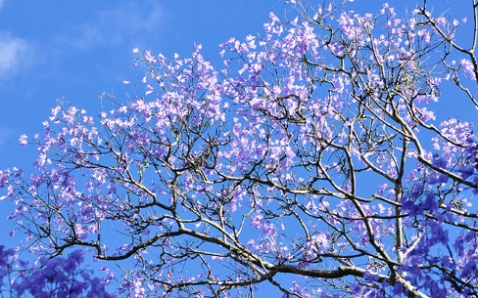
Last Chance Melody
by Maryann Hurtt
two days before he gets up
and leaves
after eighty plus earthbound years
my grandpa tells me
Get out my ol’ mouth harp
it sits in a nest
of worn Kodaks
recording a now too-long life
I crank the sick bed
prop pillows
as his at one-time wife
mother of seven kin leans close
then sings old woman
cracked notes
to his wheezy harp tune breaths
a harmony of sorts
dances the air
hymns and tunes played back
in Depression time before
lead and zinc chewed lungs
and booze held sway
listen now
you might find yourself believing
for this little while anyway
in torn and tattered
stick around love
two doors down
Death waits patiently
hums along to a few hymns
knows not to disturb
Originally published in Anti-Heroin Chic.
Photo by wallpaperuse.com.
NOTE FROM THE AUTHOR: I went to see my grandpa two days before he died. His breathing was awful after years working in the mines and living a rough life. He wanted to play his harmonica again. I propped up his pillows and he was able to wheeze out a few tunes. I ran back to my grandma’s…they had long ago separated but maintained something still kind. She came back with me and I listened to her sing and him play. This will always be one of my favorite memories and gives me a sense of hope even in hard times.

ABOUT THE AUTHOR: Now retired after working 30 years as a hospice Registered Nurse, Maryann Hurtt listened to and savored a thousand stories. Her family members were all great storytellers, and she recorded in her sixth-grade diary that when she grew up, she wanted to be a “storyteller (a good one).” She lives in Wisconsin’s Kettle Moraine, where she hikes, bikes, reads, and writes almost daily. Since retirement and able to travel, she has had the energy to pursue researching Oklahoma’s Tar Creek environmental disaster. Her grandpa worked in the lead and zinc mines and her great grandmother and grandmother worked at the Quapaw Indian Agency, where the minerals were initially mined. Turning Plow Press published Once Upon a Tar Creek Mining for Voices in 2021. Her most recent poems have appeared or upcoming in Verse-Virtual, Gyroscope Review, Moss Piglet, Hiroshima Day Anthology, Oklahoma Humanities, and Writing In a Woman’s Voice. More can be found at maryannhurtt.com.












